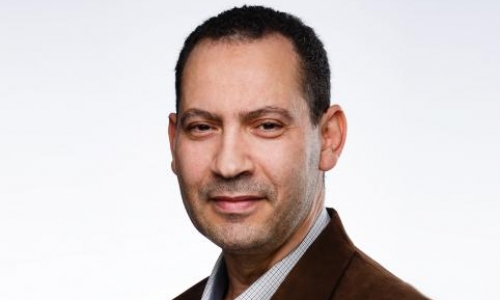HBKU Audiovisual Translation Graduate Students Contribute to Autism Resources in the Arabic Language

Graduate students in the Master of Arts in Audiovisual Translation (MAAT) program, delivered by the Translation and Interpreting Institute (TII) at Hamad Bin Khalifa University (HBKU), recently put their skills to use toward expanding autism resources available in the Arabic language.
The project was initiated by Dr. Rashid Yahiaoui, Assistant Professor in the Translation and Interpreting Studies Department (TISD), and coordinator of the MAAT program, and under his guidance, the students completed the collaborative translation project as part of their internship. Over the course of a month, the students subtitled 63 video clips addressing different issues on the topic of autism in Arabic. These videos are to be made available on the Learn Autism website, one of the leading digital autism resources with a vast library of on-demand content.
Learn Autism is the brainchild of acclaimed author and academic, Dr. Stephen Shore, who is on the autism spectrum himself, together with an exceptional team of therapy professionals and parents of children with autism. Their work aims at making the life of parents and educators more effective and promoting the inclusion of persons on the spectrum. A team of occupational therapists, speech-language pathologists, behavioral therapists, play therapists, and sensory experts aim to present simplified answers for anyone caring for a child on the autism spectrum.
The students were presented with a range of autism-related content to subtitle into Arabic and provide a glossary of specialized terminology to be added to the ongoing accessibility glossary project. Students were also able to enrich these by adding new terms and definitions.
“I saw this as an opportunity for collaboration and service to the community and offered to carry out the project during our MAAT students’ 2021 internship. Much planning and discussion went into the project before, during, and after the execution. Regular meetings were held at each stage to agree on procedures that would lead to a high-quality output that would fulfill the standards of both the Department (TISD) and Learn Autism,” said Dr. Yahiaoui.
The project was an opportunity for students to practice the practical and technological skills they gain through the MAAT, and which are required for a career in subtitling, dubbing, voice-over, subtitling for deaf and hard of hearing audiences, audio description, and multisensory communication strategies. The program is internationally validated by the University of Geneva in Switzerland, and students are taught in state-of-the-art computer labs equipped with the latest professional subtitling software. Socially-oriented graduates leave HBKU well-prepared to make an impact in the arts, cultural, and educational contexts.
“The students applied their technical, translation, and critical thinking skills to what was an exceptionally challenging task given the specialized vocabulary. Students encountered many challenges while executing the project and collaboratively managed to resolve them and provided new insights on potentially new subtitling norms that could enrich the under-development Arabic subtitling guidelines,” explained Dr. Yahiaoui.
The students also expressed their appreciation at being able to work on this valuable project, regarding the experience as eye-opening in terms of addressing practical issues and learning how to relate to persons on the autism spectrum.
Fatema Ahmad, one of the MAAT students who worked on the project, said: “The internship was a great opportunity to apply everything that I have learned until now, to experience what being an audiovisual translator might look like in practice, and to expand my knowledge about autism. I am currently working with Learn Autism to improve the subtitles' quality and create subtitling guidelines that work for their website.”
Dr. Yahiaoui concluded: “Learn Autism was an amazing opportunity for our students to put their skills into practice and contribute to raising awareness on the issue of autism in Qatar and beyond. I am thrilled that this community-service project yielded such results and look forward to a fruitful and sustainable collaboration with Learn Autism.
TII is part of the College of Humanities and Social Sciences (CHSS) at HBKU, and its MAAT program is designed to train specialists in the mediation of audiovisual texts, for foreign-language viewers and sensory impaired audiences. To learn more about CHSS, its activities, and events, visit chss.hbku.edu.qa.








